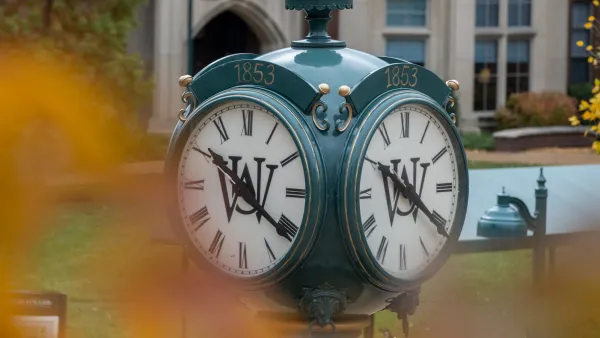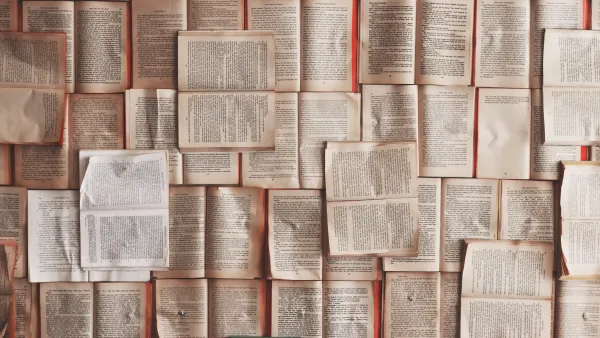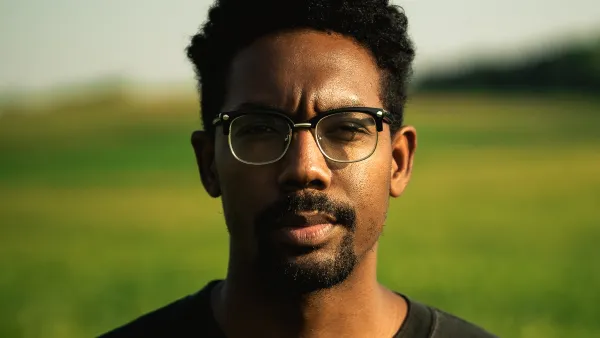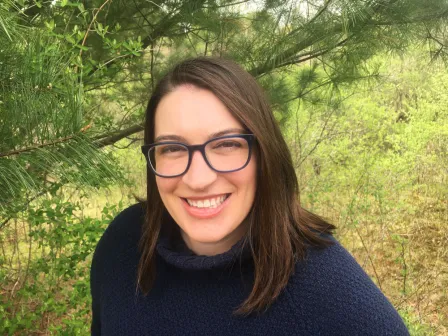
On January 4, 2022, Laura Perry, PhD, joined the staff of the Center for the Humanities in the newly created role of assistant director of research and public engagement. Perry earned a doctorate in English from the University of Wisconsin–Madison in May 2020. Her dissertation, “The Species Line: A Literary and Environmental History of White Flight,” examined representations of suburban segregation in American literature, from writers like Lorraine Hansberry, Shirley Jackson and Langston Hughes, and reflects her larger research focus on 20th-century American literature and environmental and racial justice. Below, we asked Perry about her recent postdoc, her passion for podcasting and publicly engaged humanities.
You come to the humanities center most recently from the University of Iowa’s Humanities for the Public Good (HPG) initiative. What did you do during your postdoctoral appointment there?
I was part of a team designing a new interdisciplinary humanities and social justice graduate program at the University of Iowa. Like the Redesigning Doctoral Education (RDE) program here at WashU, the goal of Iowa’s HPG initiative is to prepare humanities graduate students to succeed in a wide range of careers. I supported working groups of faculty, staff and students in imagining new approaches to humanities graduate education by focusing on “wicked problems” too challenging to solve from one discipline or one perspective alone. For instance, one group that includes historians, literary scholars and urban planners is designing a cluster of courses on environmental sustainability in conversation with local nonprofits and community organizations. During my time at Iowa, I also co-directed the 2021 Graduate Institute on Engagement and the Academy, a week-long workshop for graduate students interested in pursuing publicly engaged scholarship, teaching and advocacy. (You can read more about that institute here.)
As a co-founder of the Humanities Podcast Network, you have a passion for podcasting. How has the medium changed the way you think about public humanities and humanities education?
I think of podcasting as a form of public humanities instead of a form of publicity. Podcasts don’t have to be just another stop on a book tour. Some scholars are even launching peer-reviewed podcasts.
I got involved with podcasting while in graduate school and I’m so grateful for the many podcasting colleagues that I’ve collaborated with along the way. In October, I helped host the inaugural Humanities Podcasting Symposium, a two-day virtual event with workshops and seminars that covered everything from audio editing to questions of how to evaluate podcasting as scholarship. We hope to keep those conversations going via the Humanities Podcast Network, and we wrote about some of our plans in the editorial “It’s Time for Academe to Take Podcasting Seriously” for Inside Higher Ed.
I also recently interviewed a series of experienced audio storytellers about the intersections of academia and audio. Those conversations made clear the importance of community engagement in podcasting. James Boo, for instance, described how his team was in dialogue with their podcast’s potential audience for months before ever recording a single minute of audio. As with podcasts, successful public humanities projects are those that foster conversations between creators and communities and make a collaborative, reciprocal process core to their work. I’m always up for talking all things podcasts. If anyone out there is interested in podcasting, get in touch!
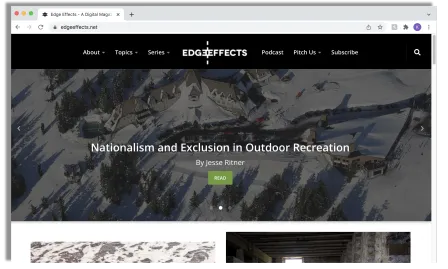
You’ve also invested in digital publishing, as a writer and managing editor for Edge Effects, an online magazine published by the University of Wisconsin’s Center for Culture, History, and Environment. What did you learn in that experience, and what stands out as you reflect on that portfolio?
Producing a weekly magazine has such a different rhythm from traditional academic work. I loved how fast-paced and collaborative it was. In many instances, academic research takes the form of a years-long, solitary investigation into a narrow topic that culminates in an article or monograph. At Edge Effects, though, each week brought a new piece, written from a new perspective, about a new environmental issue and often in a new part of the world. The editorial board is made up of a small team of (mostly volunteer) graduate students from a wide range of disciplines, like history, geography, agroecology and literary studies. The magazine publishes pieces from established scholars, first-year graduate students, scientists, humanists, artists and activists. We had to think carefully about writing for and collaborating with these diverse audiences, both inside the academy and beyond.
One piece that comes to mind when I think back on all the great essays and conversations we published is “La Lucha Yaqui.” This podcast episode was the magazine’s first dual-language piece, an interview in Spanish and English with Yaqui tribal secretary Mario Luna Romero.
Yours is a new position in the humanities center. What kinds of things will you be working on?
A little bit of everything! I look forward to working closely with center staff, faculty and fellows on scholarly and public-facing projects. I see the two pieces of my position title — research and public engagement — as inextricably intertwined. That’s one of the many reasons I’m so glad to have landed here, because humanities centers make possible collaborative, interdisciplinary and engaged work. I’ll be involved in the center’s ongoing projects, like the Divided City and RDE, and also pursuing new partnerships and developing new programs. I’m especially excited by the chance to help build and maintain projects in collaboration with St. Louis community partners.
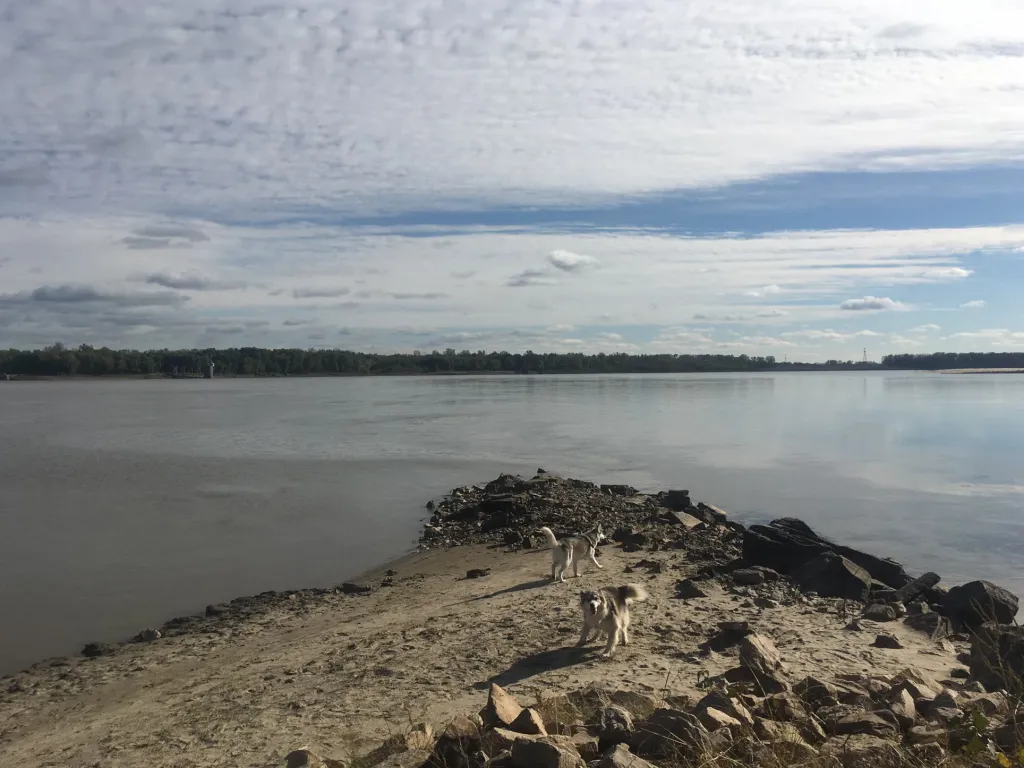
What are your impressions of St. Louis so far? What are you looking forward to as you round out your first year?
I moved to St. Louis in July, so I feel like I’m just starting to scratch the surface. After living in Madison, Wisconsin for many years, it’s exciting to be back in a bigger city. There are so many incredible institutions and neighborhoods here, and I can’t wait to get to know more of the city once it’s safer to do so. I’ve been trying to take walks in new places as often as I can, along with my two dogs. One highlight was visiting “the confluence” and standing with one foot in the Missouri and one foot in the Mississippi!
